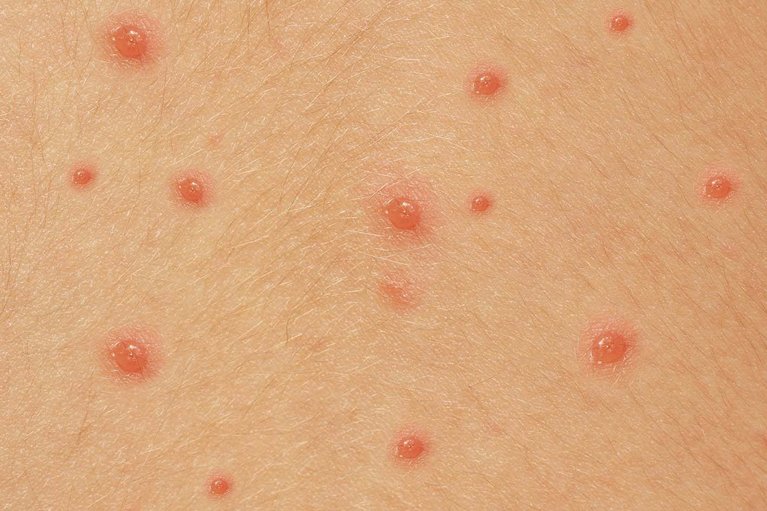OVERVIEW
CHICKENPOX
Chickenpox is considered a contagious disease.
Airlines have different policies regarding passengers with contagious illnesses (like chickenpox), and knowing what your carrier expects can save you from last-minute complications at the airport.
You are not permitted to fly until 7 days after the last crop of spots - providing the spots have crusted/scabbed over and your child feels well and has no fever.
An airline has the right to refuse to board you if they believe you are unwell or contagious. If you are worried that you or your child might be denied boarding, you should carry a letter from your GP that confirms that you are no longer infectious. It is also important to contact your airline beforehand to seek advice, as every airline has different policies.
Airline policies on Chickenpox
Here are the all-important airline policies you’ll need to check if chickenpox strikes one of your party.
Aer Lingus
Passengers are allowed to fly seven days after the appearance of the first spot.
British Airways
BA advises no travel until six days after the last blister has appeared and scabbed over. Sufferers will also need a GP’s letter stating they’re no longer infectious.
EasyJet
Sufferers will need to wait seven days after the last spot appears.
Etihad
Travel is not permitted if active lesions are present. Passengers can fly six days after the last blister appears, provided all remaining spots have crusted over.
Finnair
Anyone suffering from chickenpox will be asked to complete a ‘special assistant’ form and wait for a decision from the airline. Those with active spots are unlikely to be given permission to fly.
Jet2
Jet2 Passengers must wait seven days after first spot appeared to be considered for boarding. They’ll also need a ‘Fit to Fly’ letter from their GP.
KLM
You’ll be fit to board if all scabs are dry and you have a GP’s letter to confirm you’re not contagious.
Norwegian
If any spots are visible at the time of travel, you’ll need a doctor’s letter to confirm you or the child are no longer contagious – or face being refused permission to board.
Qantas
Don’t expect permission to board if you have active lesions – all must be dried and crusted. Doctor’s letter is advised.
Ryanair
Passengers will only be allowed to travel seven days after the appearance of the last new blister/spot.
TUI
Travellers with TUI will need to wait seven days from the appearance of their last new spot and need a fitness to fly letter from your doctor.
Virgin Atlantic
Passengers are fine to fly if it has been seven days since the last new spots, the existing crop are crusted/scabbed and they don’t have a fever.
Wizzair
Anyone with chickenpox will need a letter from their doctor confirming they are no longer contagious. This must have been issued within six days of the flight date. Call 03309770444 for more.
Vist our TRAVEL HEALTH PAGE for more information about applying for and travelling with the FREE GLOBALHEALTH INSURANCE CARD or GHIC
FURTHER INFORMATION
What about on arrival at your destination?
Passing customs checks at the destination could also prove problematic for chickenpox sufferers. Countries, such as America, have strict policies governing arrivals with contagious diseases. Check with the destination country before you fly and see what stipulations it might enforce. Travelling with a GP’s letter confirming you, or a child, is no longer infectious should help your case in most destinations.
SHOULD I CONSIDER THE CHICKENPOX VACCINE?
If your child comes into contact with someone who has chicken pox within 2 weeks of flying this can be very problematic. If they develop spots before your trip date they will not be able to fly out or even worse, if they come out in spots when you are away they may not be allowed to fly home!
From Janyary 2026 the NHS will be offering the ChickenPox vaccine to young children. It will be given as two doses, at 12 and 18 months of age, combined with the existing MMR jab which protects against measles, mumps and rubella. A catch up campaign is planned for slightly older children so they don't miss out.
If your child is older than than three and has not had chickenpox, the vaccine will still be available privately from hospitals and GPs. However it is not cheap - £90 per dose and you will need two of them approximately 4 - 6 weeks apart.
Vaccinations may be especially difficult for autistic children - but so can going through the experience of the disease. Either way, it is important to consider what is right for your family's health in the long term, as well as your travel plans in the short term.
WILL GIVING THE VACCINE PREVENT CHICKENPOX?
Unfortunately it is not possible to guaruntee that giving the vaccine will prevent your child from getting sick with chickenpox before or while on holiday.
However the current evidence suggests that if the chickenpox vaccine is given within 3 days of exposure to a person with the disease it will be c. 70 - 80% effective in preventing infection. If given within 5 days post exposure it is 60 - 70% effective.
When chickenpox does develop it is generally classed as only mild to moderate in severity.
The vaccine also provides protection against future infection, so may be worth considering as a preventive health care decision.
FOR MORE INFORMATION ON THE NEW NHS CHICKENPOX VACCINE read this BBC new article
HELPFUL RESOURCES
Useful information if your child gets chickenpox:
Chickenpox - care and treatment
On vaccines:
Chicken Pox Vaccine Information Sheet (NHS)
Evidence Paper for PostExplosure Vaccine Use
Vist our TRAVEL HEALTH PAGE for more information about applying for and travelling with the FREE GLOBALHEALTH INSURANCE CARD or GHIC
